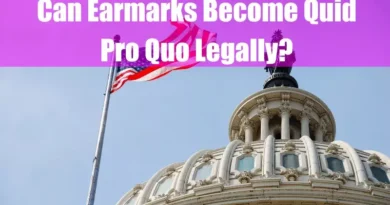What is the Legal Definition of Quid Pro Quo?
The legal definition of quid pro quo involves an exchange of goods or services where one transfer is contingent upon the other. It translates to “something for something” in Latin. In legal contexts, it is often used to describe a situation where something is given or received in return for something else.
Here are a few key areas where the term is commonly applied:
- Contract Law: Quid pro quo is fundamental in contracts where each party provides something of value to the other, forming the basis of the agreement.
- Employment Law: In the context of sexual harassment, quid pro quo refers to situations where employment decisions such as hiring, promotion, or job security are based on the acceptance or rejection of unwelcome sexual advances or requests.
- Political and Governmental Ethics: It describes exchanges where favors or advantages are given or received in return for political support or other actions.
Understanding the nuances and application of quid pro quo in different legal contexts is crucial for accurately interpreting its implications.
How is quid pro quo defined in law?
In legal terms, quid pro quo describes a situation where one party provides a good or service in exchange for another good or service. This mutual exchange forms the basis of many legal agreements and contracts.
What does quid pro quo mean in a legal dictionary?
A legal dictionary defines quid pro quo as exchanging goods, services, or favors where one transfer is contingent upon the other. It emphasizes the reciprocal nature of the transaction.
Can you explain the legal definition of quid pro quo sexual harassment?
Quid pro quo sexual harassment occurs when a person in authority demands sexual favors in exchange for employment benefits such as promotions, salary increases, or job security. It is a form of illegal workplace harassment.
What is the significance of quid pro quo in contract law?
In contract law, quid pro quo is essential as it ensures that both parties have a mutual obligation necessary for a contract to be legally binding. Each party must offer something of value to the other.
How does quid pro quo apply in political and governmental ethics?
Quid pro quo often refers to exchanges where favors, support, or advantages are given in return for political support or actions. Such exchanges can raise ethical and legal concerns, especially if they involve corruption or abuse of power.
What is an example of quid pro quo in law?
An example of quid pro quo in law is a business agreement where Company A agrees to provide services to Company B in exchange for a payment or other services. Both parties receive something of value, fulfilling the quid pro quo requirement.
How does quid pro quo differ from other forms of exchange in legal terms?
Quid pro quo specifically requires a direct and mutual exchange between parties. Other forms of exchange might involve unilateral actions or indirect benefits, but quid pro quo focuses on the immediate and reciprocal nature of the transaction.
What are the legal implications of quid pro quo arrangements?
Legal implications of quid pro quo arrangements can vary. In contracts, they are typically necessary for validity. In employment law, quid pro quo sexual harassment is illegal. In politics, such arrangements can lead to accusations of corruption or bribery.
How is quid pro quo relevant to impeachment proceedings?
In impeachment contexts, quid pro quo can be a critical factor. Suppose a public official is found to have engaged in quid pro quo arrangements for personal or political gain. In that case, it can lead to charges of abuse of power or other impeachable offenses.
What does ‘quid pro quo’ mean in legal terms?
In legal contexts, ‘quid pro quo’ is a Latin phrase that translates to “something for something.” It signifies an exchange where one party provides a good, service, or favor in return for something of comparable value from another party. This principle is foundational in both legal and business dealings, emphasizing mutual benefit and reciprocity in agreements.
How is ‘quid pro quo’ applied in contract law?
In contract law, ‘quid pro quo’ embodies the concept of consideration. Consideration is the essential exchange of value that forms the backbone of any binding contract. Both parties must contribute something of value—be it money, services, goods, or a promise—in return for a benefit received. Without such mutual obligations, a contract typically lacks enforceability under the law.
Can ‘quid pro quo’ be considered bribery?
Yes, ‘quid pro quo’ can amount to bribery when the exchange involves offering something of value to a public official to influence their official actions. For instance, providing monetary benefits, gifts, or other favors to gain preferential treatment or decisions is illegal and undermines public trust. Such corrupt practices carry severe legal consequences, as they compromise the integrity of public office and governance.
What is ‘quid pro quo’ sexual harassment?
‘Quid pro quo’ sexual harassment arises when someone in a position of authority demands sexual favors from a subordinate in exchange for workplace benefits, such as promotions, raises, or continued employment. This type of harassment is illegal under workplace laws, including Title VII of the Civil Rights Act in the United States. It not only creates a hostile work environment but also violates an individual’s rights and dignity.
Is ‘quid pro quo’ always illegal?
No, ‘quid pro quo’ is not inherently illegal. Many legitimate and lawful agreements involve a mutual exchange of value, such as business contracts or trades. However, it becomes unlawful when coercion, bribery, or unethical practices are involved. For example, using ‘quid pro quo’ to manipulate or exploit others violates ethical and legal standards.
How does ‘quid pro quo’ differ from a gift?
A gift is freely given without expecting something in return, making it an act of generosity. In contrast, ‘quid pro quo’ involves a clear expectation of reciprocity. If a gift is given with the understanding that a favor or benefit will be granted in return, it may no longer be a genuine gift but rather a ‘quid pro quo’ arrangement, which can raise ethical and legal concerns.
What are some examples of legal ‘quid pro quo’ arrangements?
Legal ‘quid pro quo’ arrangements are common in various contexts. Examples include:
- Standard business contracts where services or goods are exchanged for payment.
- Plea bargains in criminal cases, where a defendant agrees to plead guilty in exchange for a reduced sentence.
- Settlement agreements, where parties resolve disputes by agreeing to specific terms.
These arrangements are lawful as long as both parties willingly agree and no unethical or illegal practices are involved.
How is ‘quid pro quo’ relevant in politics?
In politics, ‘quid pro quo’ often refers to exchanging favors, such as a politician supporting specific legislation in return for campaign contributions. While some exchanges may fall within legal and ethical boundaries, they can cross into corruption when explicit agreements exist to perform official acts for personal gain. Such situations are heavily scrutinized to protect the integrity of public office and democracy.
What legal consequences can arise from unlawful ‘quid pro quo’ arrangements?
Unlawful ‘quid pro quo’ arrangements can lead to severe legal penalties. Individuals may face criminal charges, including bribery, corruption, or fraud, resulting in imprisonment, fines, and damage to their professional and personal reputations. Organizations involved may face civil penalties, regulatory sanctions, and a loss of public trust, which can harm their long-term viability.
How can one avoid unlawful ‘quid pro quo’ situations?
Avoiding unlawful ‘quid pro quo’ requires transparency, ethical practices, and adherence to the law. Ensure all exchanges are documented and comply with applicable regulations. Avoid coercive tactics or improper influence in professional and personal dealings. Education and awareness of laws governing bribery, harassment, and workplace ethics are vital in maintaining integrity and avoiding legal risks.









